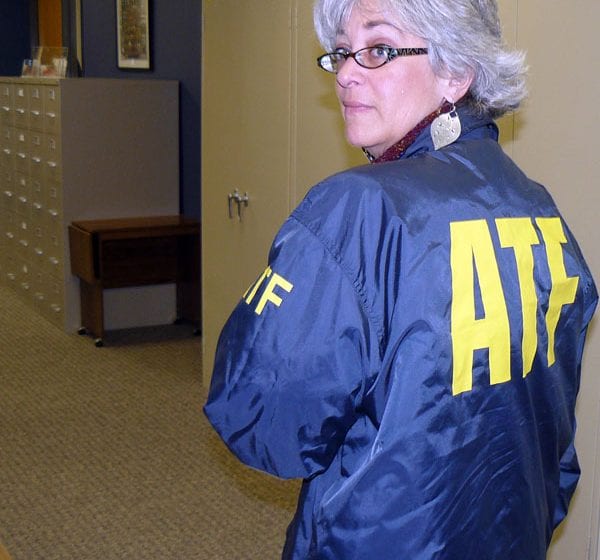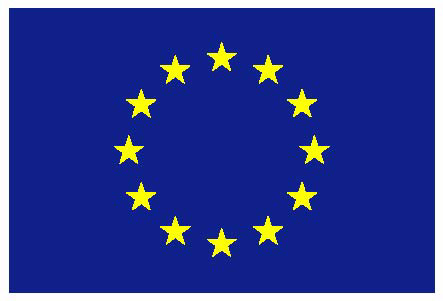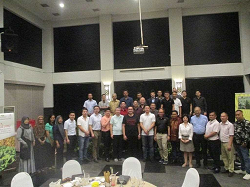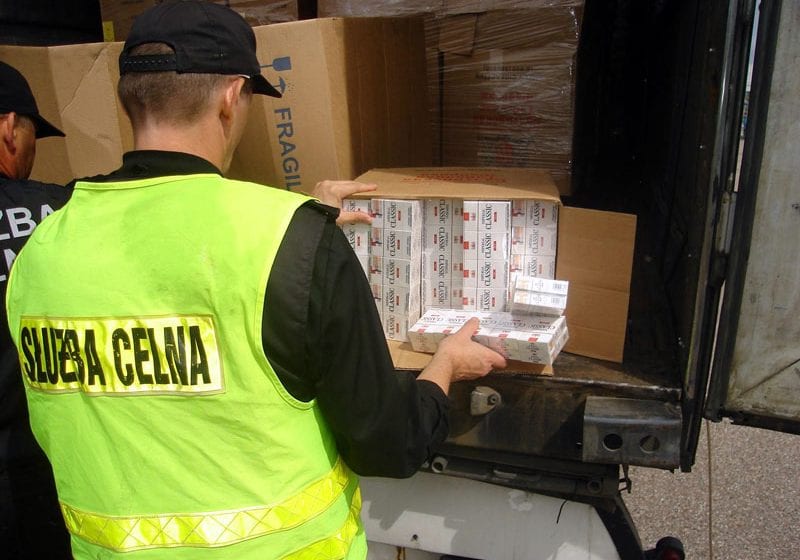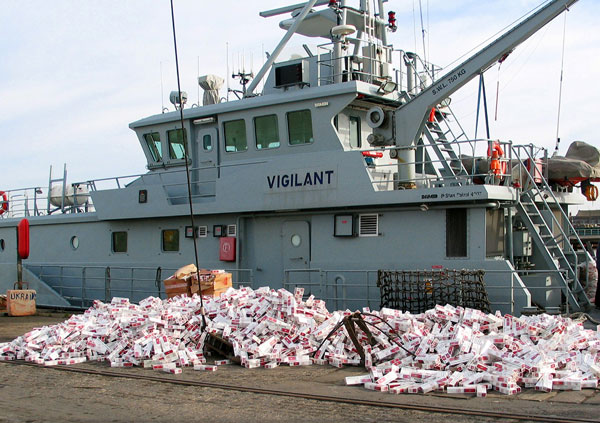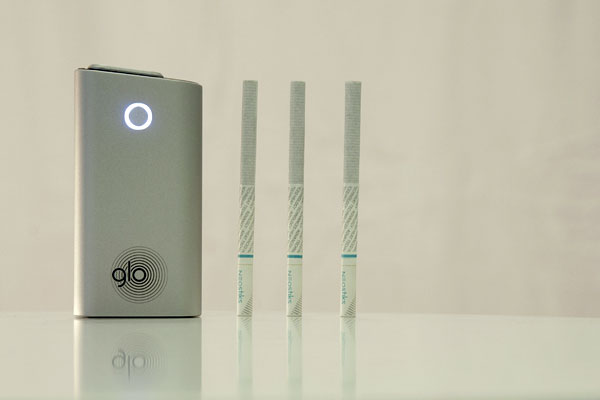The US Bureau of Alcohol, Tobacco and Firearms (ATF) has begun to enforce more aggressively a decades-old law known as the Trafficking in Contraband Cigarettes and Smokeless Tobacco Act, according to a note posted on the California Distributors’ Association (CDA) website.
The CDA said that this move could affect all distributors, but especially those that had a cash and carry business operated from their warehouses, branches, offices, or stores.
It gave details of the information that had to be obtained from purchasers in respect of sales of more than 10,000 cigarettes (50 cartons) or more than 500 single-unit consumer-sized cans or packages of smokeless tobacco in a single transaction at a distributor’s place of business.
‘This rule does not apply to duly licensed distributors who deliver to the recipient’s place of business stamped cigarettes or smokeless tobacco on which applicable taxes have been paid,’ the CDA said.
‘This rule requiring license numbers and driver’s licenses applies when cigarettes or smokeless tobacco is bought at the distributor’s place of business.’
The CDA said that the ATF had advised that its enforcement of the Cigarette and Smokeless Tobacco Contraband Act was expected to expand throughout the entire US. To date, its activities have been primarily centered around Virginia and North Carolina on criminal-oriented activities.
The CDA added that the ATF was not advising distributors in advance when it might arrive at their businesses to review their records.
‘CDA will continue to monitor the situation and will advocate – at a minimum – that the ATF advise in advance when it may visit a distributor’s place of business,’ it said.
Category: Logistics

Regulations enforced

Keeping track
Information on data storage and technical standards relating to the EU’s tobacco-products tracking and tracing system has been published in the Official Journal of the EU L 96, dated April 16.
The Journal includes:
1) The EU Commission’s Delegated Regulation (EU) 2018/573 of December 15 2017 on key elements of data storage contracts to be concluded as part of a traceability system for tobacco products;
2) The Commission’s Implementing Regulation (EU) 2018/574 of December 15 2017 on technical standards for the establishment and operation of a traceability system for tobacco products; and
3) The Commission’s Implementing Decision (EU) 2018/576 of December 15 2017 on technical standards for security features applied to tobacco products.
The Journal is at: http://eur-lex.europa.eu/legal-content/EN/TXT/PDF/?uri=OJ:L:2018:096:FULL&from=EN.
Star Tobacco expanding
Far East Leaf Indonesia (FELI), a wholly owned subsidiary of Star Tobacco International, has inaugurated its new headquarters in the former embassy building of the East Timor Consulate in the diplomatic suburb of Renon in Denpasar Bali.
A Star press note issued on Tuesday, said the event was attended by more than 20 major clients and 10 major suppliers of FELI.
‘FELI has been active in Indonesia over the past five years and has become a mainstream supplier to small and medium companies in the Java region,’ the note said. ‘This success can be attributed to FELI’s investment in infrastructure in tobacco storage depots in Jebel…’
The storage facility is said to carry a full range of imported Virginia, Burley and oriental tobaccos, as well as reconstituted tobacco and fines.
FELI is also a major exporter of Indonesian tobaccos to Star cigarette- and cigar-producing clients in Europe and Central America.
The inauguration (pictured) was hosted by Mehmet Ayyildiz, FELI’s vice president.
Meanwhile, earlier this month, Star Tobacco International announced the opening of its new headquarters in Istanbul, Turkey.
In a press note issued on Friday, Star said the previous building had become inadequate to support the growth of the company; so it had moved into a six-floor building.
The new building had enough space for 50 employees and included a conference floor and a social floor for the use of employees during their spare time.
The new headquarters is at: Mecidiye Mahallesi, Taş Basamak Sokak. No: 15 Beşiktaş-Ortaköy, İstanbul, Turkey.
UK wholesaler goes under
Imperial Brands said yesterday that it was disappointed that Palmer & Harvey (P&H), the UK’s biggest tobacco wholesaler, had called in the administrators.
But in notes posted on their websites, Imperial and Japan Tobacco Inc. each said that the P&H’s demise would not ‘significantly’ affect the delivery of their products because they had contingency plans in place.
‘In October 2017 Palmer & Harvey (P&H) entered a period of exclusivity with the Carlyle Group with the intention of securing significant capital investment,’ Imperial said in its note. ‘We are disappointed to learn that despite Imperial’s on-going support, the directors of P&H have today [Tuesday] appointed administrators.
‘P&H has been a long-standing trading partner in the UK and for several months Imperial has been working to find a solution that provides the business, and its employees, with a sustainable long-term future. ‘Imperial was prepared to explore further alternatives and is disappointed that the other parties have been unable to pursue these to a successful conclusion.
‘We currently estimate that P&H’s decision to enter administration may have a one-off impact on Group operating profit in our current financial year by up to £160 million, the majority of which relates to excise duty which is non-recoverable.
‘We do not anticipate any significant disruption to our UK operations. We have well-prepared contingency plans which will ensure that the on-going supply to Imperial’s retail customers remains unaffected.’
Meanwhile, JT said that P&H delivered about 25 percent of Japan Tobacco International’s volume in the UK but that, because of a contingency plan already in place it did not expect any significant interruption in the supply of its products.
‘The JT Group’s maximum credit exposure as of November 29, 2017 is £148 million,’ JT said. ‘It is not yet possible to determine the financial impacts at this time, as we need to allow the administration process to progress.’

Track-and-trace under fire
A UK member of the European Parliament has suggested that the European Commission’s plans for a tobacco-products track-and-trace system would disproportionally impact small and traditional tobacco manufacturers.
In a preamble to two questions put to the Commission, Bill Etheridge said that now that all of the UK’s large tobacco manufacturing plants had closed, leaving thousands of citizens jobless, the tobacco manufacturing sector was left with a handful of micro or small family-owned companies that were rooted in their original localities.
‘These companies rely on their ability to export the traditional tobacco products (e.g. pipe tobacco, nasal snuff, chewing tobacco) they produce and distribute,’ he wrote.
‘Is the Commission aware that its decision to extend the scope of “track and trace” to tobacco products destined for export:
- Potentially oversteps the mandate that the European Parliament has given to the Commission under the European Tobacco Products Directive (2014/40/EU)?
- Establishes a self-imposed trade barrier which disproportionally impacts the smaller and traditional tobacco manufacturers, ultimately driving them out of business?’
The Commission is due to reply in writing.

Stocking up in the UAE
Grocery stores and smokers in the United Arab Emirates are stockpiling cigarettes to put off the impact of a new sales tax that is due to come into effect next month and that will increase prices by 100 percent, according to a story in The Khaleej Times.
Some smokers are buying and taking away as many cartons as they can, while others are making advance payments so that grocery stores reserve cigarettes for them.
At the same time, the growing demand from customers is compelling the grocery stores to make up-front payments to cigarette distributors.
Grocery-store owners reportedly told the Khaleej Times that because they were having to pay up front, they were having to ask their regular customers to pay in advance and collect their cigarettes a few days later.
One problem is that suppliers are limiting the number of cigarettes they reserve for grocery stores.

Tracking compromised
The International Tax Stamp Association (ITSA) has warned that there are ‘failings and loopholes’ in EU plans for tobacco security, according to a story in Packaging News.
The organization is concerned about the implementation of the track-and-trace and security-feature requirements of the EU’s Tobacco Products Directive.
It said that the draft legislation gave no guarantee of independence from the tobacco industry and that it did not provide strong authentication tools for controllers and consumers.
Juan Yañez, chair of the ITSA, is due to highlight the group’s concerns to members of the European parliament.
He said that manufacturers could “manipulate” the unique identifier for track and trace purposes, because they would be able to print it onto cigarette packs themselves, or even not print it at all.
The Packaging News story is at: https://www.packagingnews.co.uk/news/tax-trade-body-warns-eu-tobacco-track-trace-plans-21-09-2017.

No distribution ambitions
The EU Commission has said that it has no plans to propose the setting-up of a centralised European agency or governing body for the distribution of tobacco products.
The Commission’s comment came in reply to a question posed by Cătălin Sorin Ivan a Romanian member of the EU Parliament.
Ivan had asked whether it was true that the Commission was proposing to set up a new central European agency, namely a governing body that would centralize the entire distribution of tobacco products.
‘If this is not the case,’ he asked, ‘is the Commission indeed proposing to set up a body, and if so, what would its competition be and what would its competences be?’
In reply, the Commission said it had no ‘current plans to propose the establishment of a centralised European agency or governing body for the distribution of tobacco products’.
‘The Commission is currently working on the implementation of the systems of traceability and security features for tobacco products provided for under Articles 15 and 16 of Directive 2014/40/EU and has published an indicative implementation timeline on its website,’ it added.

HNB market set to glow
British American Tobacco is to roll out its heat-not-burn tobacco device on South Korea’s market, where demand for such devices is increasing, according to a story in The Korea Herald.
BAT Korea is due to hold a press conference on Thursday to promote Glo and announce when the device will go on sale, company officials were quoted as saying on Sunday.
The company is hoping to boost sales, in part by satisfying what is unfulfilled demand.
The Times reported that Philip Morris International launched IQOS in early June but has not been able to keep up with demand.
BAT Korea has recently completed the construction of new facilities in Sacheon, South Gyeongsang Province, where it produces the consumable element of the device, Neosticks. These are currently being exported to Japan but will soon be made available in Korea as well, officials said.
Meanwhile, KT&G is due to roll out its own heat-not-burn device.

Tracking questions
The Hungarian MEP Norbert Erdős has asked the EU Commission whether tobacco producers may continue to introduce their tobacco-products tracking and tracing systems.
In a preamble to two questions, which are due to be answered by the Commission in writing, Erdős said that though the new Tobacco Products Directive (TPD) entered into force more than three years ago – on 18 May 2014 – the Directorate-General for Health and Food Safety (DG SANTE) planned to adopt, ‘experimentally and only by the end of this year, the delegated and implementing acts intended to bring into effect Article 15 on traceability and Article 16 on security features’.
‘This means that the Commission has spent more than three and a half years drafting the outline of the legislation regulating the introduction to the technical specifications, which leaves only 18 months for member states, the industry and distributors to carry out the work needed for them to comply with the legislation,’ he said.
‘The Commission has previously declared that member states need not wait for the delegated and implementing acts and that member states and industry operators may start the work needed for them to comply with the requirements specified in the TPD.’
Erdős asked:
- ‘Does that mean that tobacco producers may continue the introduction of their tracking and tracing systems?’ and
- ‘Can the Commission confirm one of the conclusions of the Commission’s communication of 6 June 2013 (COM (2013) 324 final) that “the measures implemented by the four big manufacturers under the co-operation agreements, such as tracking and tracing of tobacco products, due diligence in relation to customers and prevention of money laundering, have clearly led to a significant reduction in the presence of these companies’ products on the illicit market”?’

